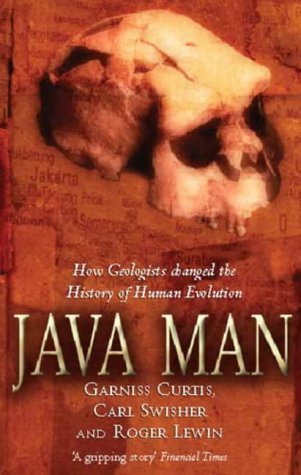A scientific narrative of a landmark discovery, involving the fascinating adventure of the Dutch physician Eugene Dubois and his search for early humans in Java in the East Indies a century ago. There he uncovered the first fossils of our immediate ancestor, Homo erectus. A century later, the authors brought the power of the most sensitive radiosotopic dating technique to Homo erectus fossils from the same island where Dubois toiled so diligently. Their true age is almost two million years old, a million years older than anthropological theory has held, and the implications are profound. Not only does it mean that Homo erectus left Africa almost a million years earlier than was believed, indicating that it was a very different kind of animal than we thought; it also tells us that our own species, Homo sapiens, evolved rapidly and recently, in Africa. This solves anthropology's most contentious and rancorous debate, that of the origin of modern humans and the fate of the Neanderthals.
If you think
nature is red in tooth and claw, you've never seen paleoanthropologists. Never has so much fuss been made by so many over so little actual evidence. Unlike most scientific controversies, however, those in paleoanthropology involve seriously emotional issues: nothing less than the origin and nature of humanity.
One of the most fervent controversies in human origins has been over whether human evolution occurred only in Africa (the "Out of Africa" hypothesis), or whether humans evolved on different continents concurrently (the "Multiregional" hypothesis). The bones known as "Java Man" are key for deciding between these theories, and the most important unknowns about them are their dates. Geochronologists Carl Swisher and Garniss Curtis produced the first good dates for fossil humans from Java and set the paleoanthropological community on its collective ear--some of the fossils are much older than anyone thought, others are much younger. In this book they tell their story with the aid of Roger Lewin, a widely respected science journalist and the author of Bones of Contention.
Historians of academic infighting will find Java Man a treasure trove. Rarely has the mask of science been peeled back so completely, to reveal a seething mass of egos, mistakes, lawsuits, and crude hand gestures, boiling around some real, basic questions in human evolution. It's not yet particularly conclusive, but it is certainly not dull. --Mary Ellen Curtin
